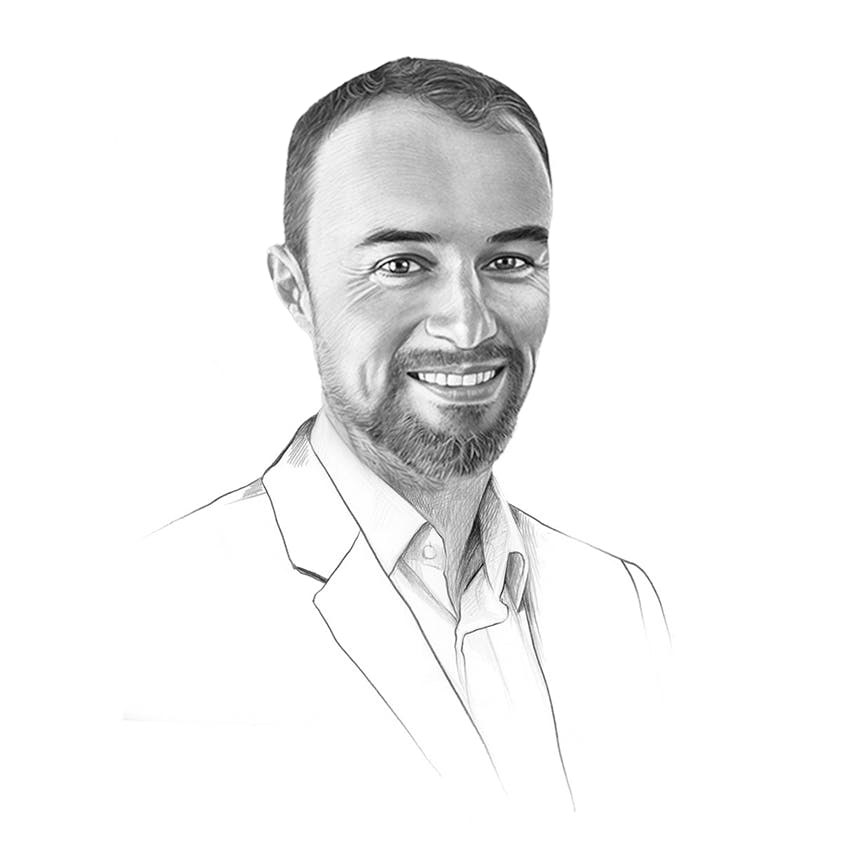
A successful start on the stock market – made easy with ETFs
In the current environment of low interest rates and expensive real estate, the stock market offers an attractive alternative for savings. Uncomplicated and cost-efficient solutions have the advantage.
Would you like to buy an apartment or a house at some point? Most of us make big plans from time to time. Others would like to have more money for retirement or reduce their workload. But such plans often disappear into a drawer. This is not surprising, because as Darren Hardy writes in his book «The Compound Effect,» the biggest changes can often be achieved with small, regular actions.
Let's take a look at the four-person Müller family. The parents will retire in 30 years. If the family invests 1'000 CHF every month until retirement and achieves an annual return of 5%, the family will be around 800'000 CHF richer when they retire. If these savings are not invested, the final capital will be 360'000 CHF. In a sense, it would cost this family 440'000 CHF not to think about their savings. That's an expensive peace of mind.
Anyone who keeps their money in a savings account in Switzerland currently receives virtually no real interest, or even negative interest. Real estate, on the other hand, is a way to earn money. In the long term, you usually save money by buying an apartment or house instead of renting. However, buying real estate is only possible for a minority, especially in Switzerland's major centers. According to the Federal Statistical Office (1), the rental rate in Switzerland is just under 60%. In large cities, the figure is over 80%. In this environment, stocks therefore offer an attractive opportunity to put your savings to work – not least because the entry barriers are much lower.
When investing, returns and risk cannot be separated. If you leave your money in a savings account, you take virtually no risk, but you also receive no return. If, on the other hand, you buy stocks, you can expect an annual return of between 4% and 9% in the long term. In the short term, however, your investment may lose more than half of its value.
What should you bear in mind if you want to invest in stocks? In principle, stocks are worthwhile for all savings that will not need to be touched for the next ten to 15 years. The longer the time horizon, the more your assets will grow thanks to the compound interest effect. If you have the necessary time, expertise, and interest, you can open a securities account with an online broker and trade stocks yourself. However, independent studies (2) show that this approach usually leads to below-average returns. Alternatively, you can entrust your money to a bank or an online wealth manager.
If you want to invest in stocks, you basically have two options. You can either buy shares in individual companies, such as ABB or Apple. This allows you to achieve high potential returns, but you also risk losing a lot if the companies you choose become insolvent. Alternatively, you can buy exchange-traded funds (ETFs). ETFs allow you to not put all your eggs in one basket. Most ETFs contain shares from several dozen to several hundred companies. When you invest in a company, you are betting that it will be more successful in the future. When you invest in an ETF, on the other hand, you are betting on the economy of a country, a region, or an industry sector. If you don't like betting, you should diversify your investments across different ETFs, but more on that below.
The Swiss Market Index (SMI) shows what you can expect from an ETF. The SMI consists of twenty large Swiss companies, including Nestlé, Novartis, and Swisscom. The performance of the SMI provides an indication of the state of the Swiss economy. If the share prices of most of the companies represented in the SMI rise or fall, the value of the SMI also rises or falls. However, it is not possible to invest directly in the SMI. Investors can, however, invest their money in ETFs that track the performance of the SMI. If you don't want to invest solely in large Swiss companies, you can select other ETFs that track the performance of indices from other economic regions or industry sectors.
According to Harold Samuel, the three most important characteristics of real estate are location, location, and location. Applied to stocks, this rule should be «fees, fees, and fees.» If the Müller family paid 1% in fees annually and achieved an annual return of only 4% instead of 5%, their capital would be around 120'000 CHF less when they retire. Regardless of whether you invest your money on the stock market yourself or have someone else do it for you, you should always make sure that your costs remain low. Nowadays, the annual fees for most ETFs are around 0.15% of the capital invested. ETFs are therefore attractively priced.
Conclusion
In an environment of persistently low interest rates and high real estate prices, stocks are an excellent option for long-term investments. ETFs are cost-efficient and spread the risk of losses. At True Wealth, you can invest your free assets starting at 8'500 CHF in ETFs in an automated and diversified manner. In Pillar 3a and the children's portfolio, investments are possible from as little as 1'000 CHF. When you open an account, we determine your risk tolerance. If you have a higher risk tolerance, we will recommend a higher equity allocation. If you have a lower risk tolerance, we will recommend other, less risky asset classes such as bonds. Real estate stocks and commodity ETFs provide additional diversification. You can adjust or refine our recommendation at any time as you wish. After opening your account, your initial capital will be invested within one to two business days in accordance with the investment mix you have confirmed. The annual fee is 0.25-0.50% of the assets under management (3), and our Pillar 3a is even free of charge. This makes us one of the most attractively priced wealth managers in Switzerland. As we invest exclusively in liquid ETFs, you can access your invested money at any time.
Links
About the author

Founder and CEO of True Wealth. After graduating from the Swiss Federal Institute of Technology (ETH) as a physicist, Felix first spent several years in Swiss industry and then four years with a major reinsurance company in portfolio management and risk modeling.

Ready to invest?
Open accountNot sure how to start? Open a test account and upgrade to a full account later.
Open test account